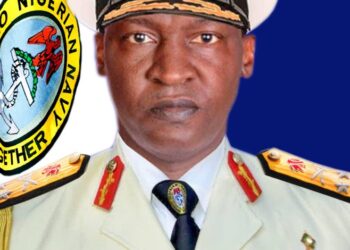Former President Chief Olusegun Obasanjo has disclosed that he rejected a proposal in 2007 to position Nasir El-Rufai, then Minister of the Federal Capital Territory (FCT), as his successor.
Speaking on Friday at the second edition of the Ajibosin Platform Annual Symposium in Abeokuta, Ogun State, Obasanjo explained that he considered El-Rufai, who previously served as Director-General of the Bureau of Public Enterprises (BPE) and later as FCT Minister, “not yet mature enough” to lead Nigeria.
The revelation came during the keynote address by former Minister of Aviation Osita Chidoka, who recounted how El-Rufai introduced him to Obasanjo at age 34, a meeting that eventually led to his appointment as Corps Marshal of the Federal Road Safety Corps (FRSC).
Midway through Chidoka’s speech, Obasanjo interjected, reminding the audience of a key detail:
“Let him tell you,” he said with a smile. “He didn’t mention that when I was leaving government, he was pushing that his friend, El-Rufai, should be brought in as my successor.”
Addressing Chidoka directly, Obasanjo added playfully, “No be so?” — a remark Chidoka confirmed. He continued: “I did not yield to the pressure. Later, he asked why I didn’t agree, and I told him El-Rufai needed to mature. Many years later, after seeing his performance, he came back and said, ‘You were absolutely correct — El-Rufai needed to mature.’”
Despite this, Obasanjo praised El-Rufai, Chidoka, and other members of his administration, describing them as “individuals with special attributes” who significantly contributed to the success of his government between 1999 and 2007.
On leadership, Obasanjo emphasized the importance of character, experience, exposure, and proper training in public service.
“It’s only in politics that I found out there is no training for leadership,” he said. “Even among armed robbers, I was told there is apprenticeship. But in politics, there’s no training for leadership. That’s not good enough.”
Chidoka, in his keynote, argued that Nigeria’s persistent challenges are not due to a lack of ideas but the failure to build robust systems and institutions that ensure accountability and continuity.
“Leadership finds its true measure not in speeches or charisma, but in the systems it leaves behind,” he said. “Moral conviction must translate into the everyday machinery of governance — rules, routines, and institutions that make competence predictable and corruption difficult.”
He added: “Nigeria’s problem has never been the absence of ideas; it is the absence of systems strong enough to outlive their authors. We must make leadership accountable by building national dashboards and accountability systems that track every promise, every budget, every outcome.”
The symposium, which attracted political figures, academics, and civic advocates, centered on the theme: “Leadership, Governance, and Institutional Renewal in Nigeria.”












